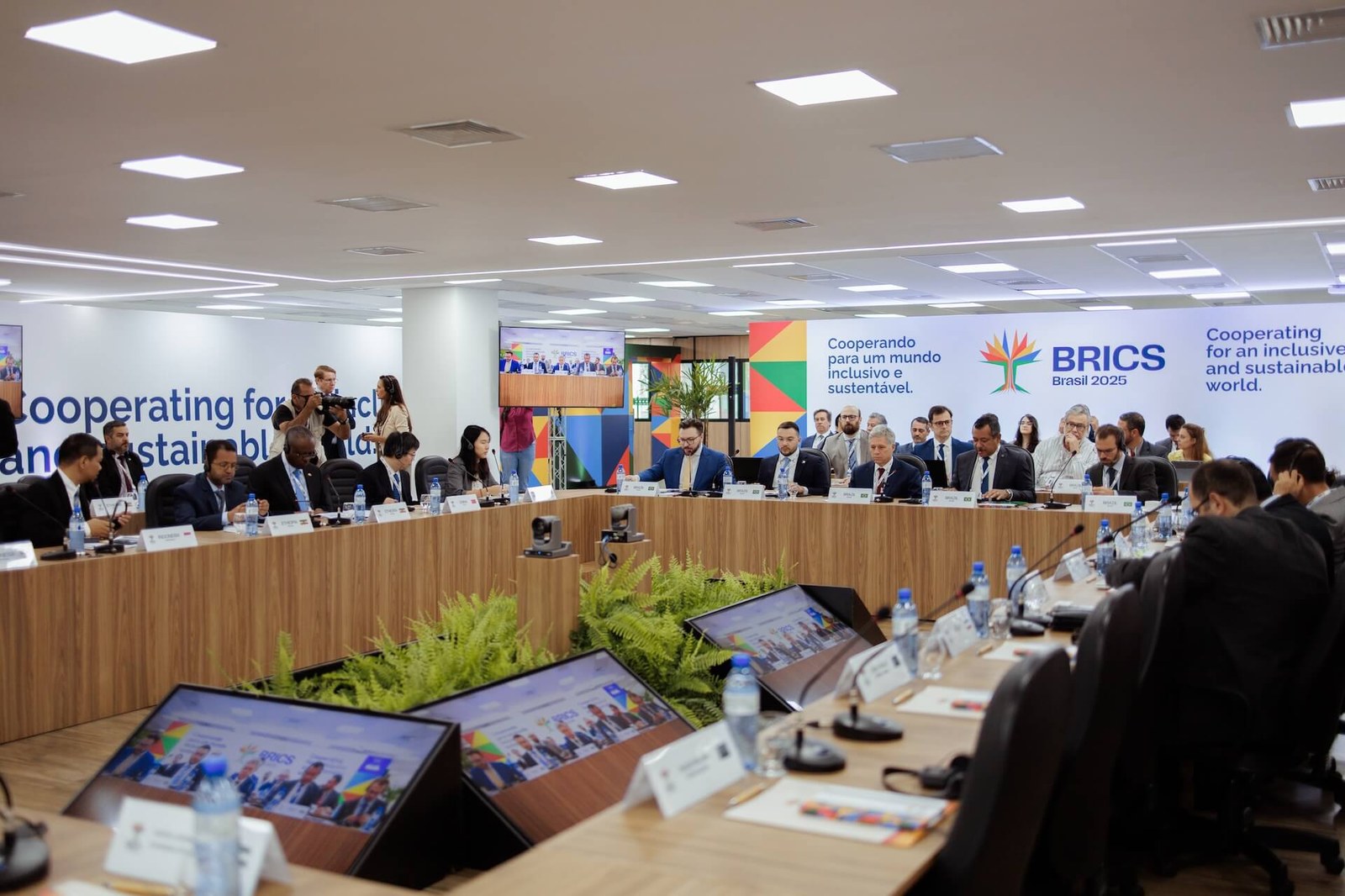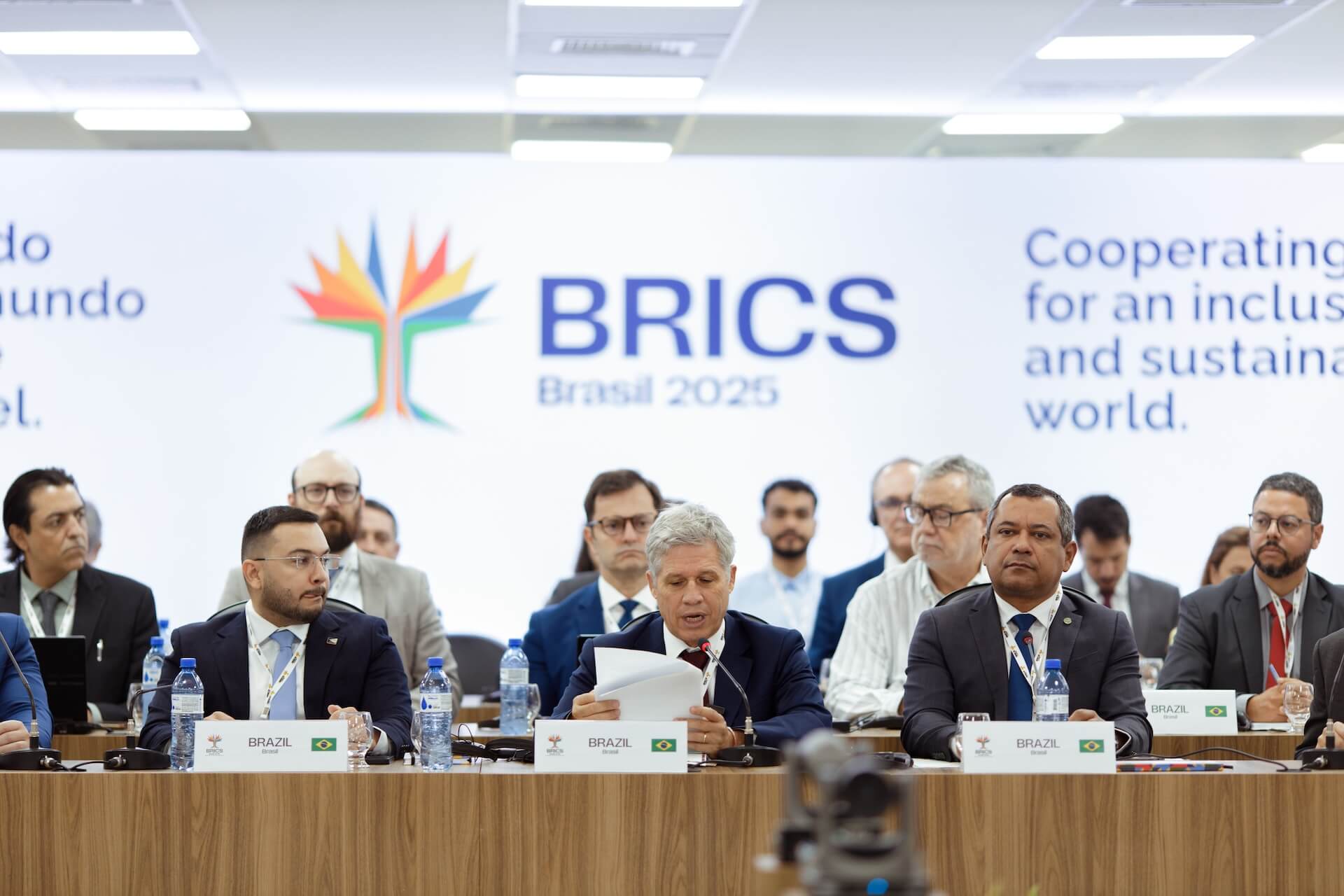Food insecurity is not inevitable, states Minister Paulo Teixeira
The first in-person technical meeting of the BRICS Agriculture Working Group began this Wednesday, March 12, focusing on strategic partnerships between member countries and the promotion of food security. Together, BRICS countries are major producers and consumers of agricultural products. Given this vast potential, Minister of Agrarian Development Paulo Teixeira believes that food insecurity is not inevitable.

By Thayara Martins | thayara.martins@presidencia.gov.br
The first in-person technical meeting of the BRICS Agriculture Working Group began this Wednesday (12) in Brasilia. According to Brasil's Minister of Agrarian Development and Family Farming, Paulo Teixeira, BRICS countries play a key role in global agricultural production, accounting for 42% of the world's food production, 33% of agricultural land, and 39% of the planet's water resources. Additionally, they are home to more than half of the world's 550 million family farms.
This reality places a responsibility on BRICS countries to act collectively and coordinate efforts to tackle the challenges of the 21st century, such as the global rise in the cost of healthy food, which puts billions of people at risk of food insecurity worldwide. The impact of this crisis is even more severe for developing countries.
The minister argues that food insecurity is not inevitable and highlights that, in recent years, some nations –including members of the BRICS– have shown that well-designed public policies can reverse this situation. As Brasil assumes the BRICS presidency, it does so with a strong commitment to food and nutritional security, strengthening of family farming, and promoting sustainable development.
"The Global Alliance Against Hunger and Poverty, launched by President Lula during Brasil's G20 Presidency last year, is an initiative aimed precisely at strengthening international cooperation by promoting the exchange of experiences on effective policies, including the strengthening of small and medium-scale agriculture, and ensuring that the most vulnerable populations have access to healthy and diverse food," stated Minister Paulo Teixeira at the opening of the meeting.
"The Global Alliance Against Hunger and Poverty, launched by President Lula during Brasil's G20 Presidency last year, is an initiative aimed precisely at strengthening international cooperation by promoting the exchange of experiences on effective policies, including the strengthening of small and medium-scale agriculture, and ensuring that the most vulnerable populations have access to healthy and diverse food."
Variations in food prices
The unpredictability of food prices impacts the economic and social stability of countries. Furthermore, extreme weather events, financial speculation, and global conflicts amplify fluctuations in agricultural prices, harming both producers and consumers.
"Therefore, we support the discussion on strategic stock policies as an essential tool to reduce vulnerability to these shocks and stabilize food prices. In Brasil, the National Supply Company (Companhia Nacional de Abastecimento /CONAB), linked to our Ministry, is rebuilding its capacity to create stocks, ensuring greater food security for the population," said the minister.
Paulo Teixeira also advocated that, whenever possible, these stocks be composed of food purchased from small-scale producers, thereby promoting rural development, food sovereignty, and productive inclusion.
Regional food stocks are strategic tools already used in various parts of the world and will be discussed in one of the panels of the meeting, which is scheduled to conclude next Friday, March 14.
Partnerships and modernization

According to the Deputy Minister of the Ministry of Agriculture and Livestock of Brasil, Cleber Oliveira Soares, it is also necessary to strengthen intra-BRICS trade, which can boost regional economic development. One of the topics being discussed is the implementation and improvement of automated systems in the field to enhance the commercial flow and ensure the delivery of quality food to the population.
"The BRICS countries are major producers and consumers of food and agricultural products. We are facing a historic opportunity, and this meeting should be a milestone for advancing concrete initiatives to ensure a fairer, more productive, and environmentally balanced agricultural future," said Deputy Minister Cleber Oliveira.
He also thanked what he called the solid foundation left by Russia's presidency last year. According to Cleber Oliveira, the Kazan Declaration solidified the commitment to fair trade, sustainability, and the strengthening of the production chains in agriculture, livestock, fishing, and other related sectors.
The Deputy Minister of Fisheries and Aquaculture, Rivetla Édipo Araújo Cruz, agrees that it is necessary to increasingly stimulate strategic partnerships between the member countries of the forum. He believes that the different potentials of the 11 BRICS member states in the areas of fishing and agriculture create huge opportunities for cooperation and investments that can boost other economic sectors and trade exchanges within the bloc.
"We want to work with our partners to promote aquatic food systems through cooperation in science, innovation, technology transfer, and training. We aim to strengthen international conservation and fisheries management organizations, expand and intensify sustainable aquaculture, and promote responsible practices in extractive fishing, including the prevention and fight against illegal fishing," he stated.
At the end of the 2025 negotiation cycle, the working group plans to present a proposed action plan for cooperation among the bloc's countries in fisheries and aquaculture for the 2025–2028 period.